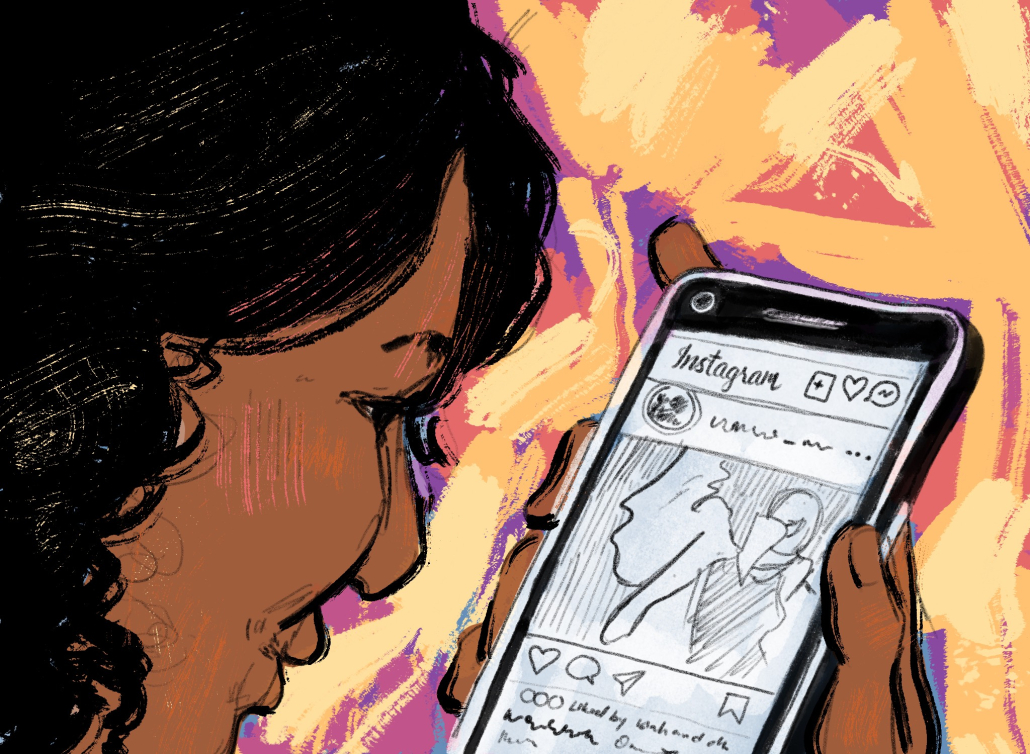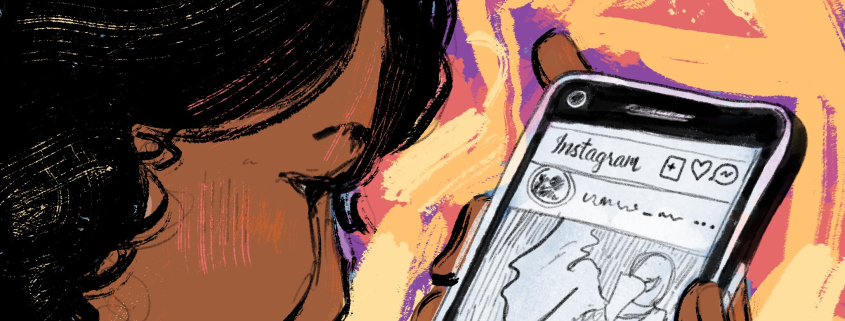Instagram can never be casual

After begging my mom for months to let me download it, I finally became a proud user of Instagram in the sixth grade. My name wasn’t in my username and I wasn’t allowed to post pictures of myself, but I didn’t let that stop me. I immediately got to work, posting every relatable Teenager Post screenshot I found on the internet.
There were so many cherishable trends I look back on — the days when I listed every single one of my middle school friends in my bio, when Squaready was all the rage, when VSCO filters (C1 if you know what I mean) took Instagram by storm — all of these trends defined eras in my life on Instagram.
However, one thing has always stayed constant: Social media has always been a way of sharing the best parts of life. This is where Instagram gets complicated. By all means, I am not an Instagram hater. I’m not the mom that tells you it’s killing your brain cells or wasting your time. Instagram creates a special space for many, whether it be an outlet for creativity, a way to promote work or a space to catch up and share with friends, old and new. It can also be the confidence boost you need — I’m guilty of doing photoshoots with my friends for Instagram, and I’m sure most people reading this are, too.
The real issue has always been the inherent sense of comparison that comes with Instagram. I see it as less of what you post yourself but rather how you digest the photos you come across. Whether it be a beautiful person, nice clothing, pretty vacations, a healthy relationship or a plenitude of friends, it is easy to feel like others have what you are lacking. It is a rabbit hole of insecurities that build when you forget this is someone showing only the most beautiful parts of their life, just like you do for yourself.
Because social media has become so tied to the identities of others and how we judge each other in our generation, it is used as a means of best representation. I have heard many judge whether someone seems cool and if they would consider being their friend just on the basis of a glance at their feed. Because of the effort put in by so many, it is important that said effort is recognized and understood by all users.
In the last year, there has been a huge movement toward “casual posting.” People are trying to lose the effort behind Instagram in order to show a more authentic, casual side of their world. The thought is there, but the execution is dangerous. If I scroll through my feed now, it’s filled with slideshows or “dumps” with mirror selfies, cute food, flowers, pretty scenery, lots of friends and fun nights out. Mixed with an absence of filters and an emphasis on funny photos rather than staged, this has changed the feel of Instagram in a move toward authentic posting.
The problem is Instagram can’t be casual. Believing in this will only hurt users’ mental health. An unedited album showing every pretty part of one’s casual life leaves behind the mutual understanding of users everywhere that Instagram is showing only the best parts and enters a fuzzy gray area that makes people believe what one is posting is a more accurate representation of what their day-to-day life looks like when really it is just a another facade.
It isn’t that posting can’t be casual — it can be and there are a few users out there who really try to capture their life authentically, but it is not the standard or the status quo. Instagram is a way of putting our best foot forward in a neat package that anyone on the internet can access and use to judge us. Just because the aesthetic changes from orange filters and white borders to effortless dumps doesn’t mean each photo isn’t hand-picked to create a particular image of the user at their best.
By acknowledging Instagram can never be casual and rather that it is society moving between aesthetics of casualness, we can better protect users of social media everywhere. Jealousy and insecurity bred by Instagram will always exist, but it is also now deeply rooted in our culture. A shared understanding this is all of us representing our best selves and that the casual beauty of one’s photo dump isn’t the true image of their everyday life is the best way to support and navigate the complicated relationship between Instagram and mental health.

